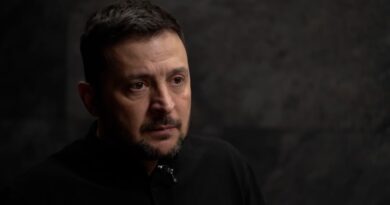Desperate Putin’s new ‘heavy weaponry’ law after Wagner coup ‘security threat’ | World | News
Russian President Vladimir Putin has signed a measure into law, granting the Russian National Guard, Rosgvardia, the authority to acquire heavy weaponry.
Rosgvardia, a sprawling organisation consisting of up to 200,000 frontline personnel, was initially established in its modern form in 2016.
Led by Viktor Zolotov, a trusted confidant of President Putin and his former bodyguard, Rosgvardia’s primary purpose is to ensure internal security and counteract threats to the regime.
The force was envisaged as a response to potential domestic turmoil, providing a capable unit to handle uprisings, protests, and internal unrest.
The decision to arm Rosgvardia with heavy weaponry comes in the aftermath of the Wagner mutiny that unfolded in June 2023. The Wagner Group, a private military company, experienced an attempted uprising that exposed vulnerabilities within the country’s security apparatus.
But according to the UK Ministry of Defence, “Despite Zolotov’s claim that his force performed ‘excellently’ during the mutiny, there is no evidence that Rosgvardia carried out any effective action against Wagner: exactly the sort of internal security threat it was designed to repress.
“With Zolotov previously suggesting that heavy equipment should include artillery and attack helicopters, the move suggests that the Kremlin is doubling down on resourcing Rosgvardia as one of the key organisations to ensure regime security.”
Critics argue that the increased militarization of Rosgvardia could lead to further erosion of civil liberties and human rights within Russia.
Moreover, the decision to arm a domestic security force with heavy weaponry may exacerbate tensions with neighbouring countries and heighten geopolitical uncertainties.
By bolstering Rosgvardia’s capabilities, the Russian government aims to demonstrate its resolve to maintain control and suppress any potential challenges to its authority.





